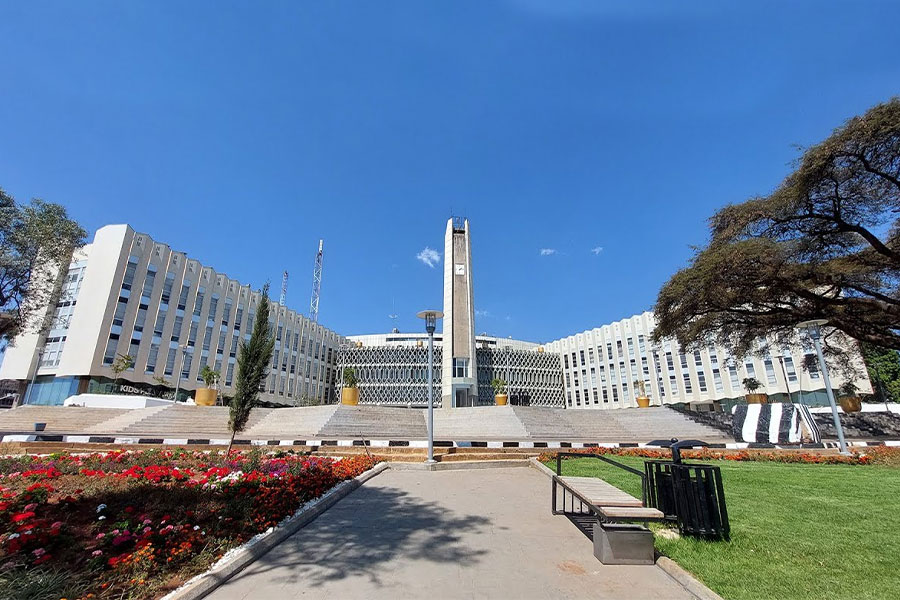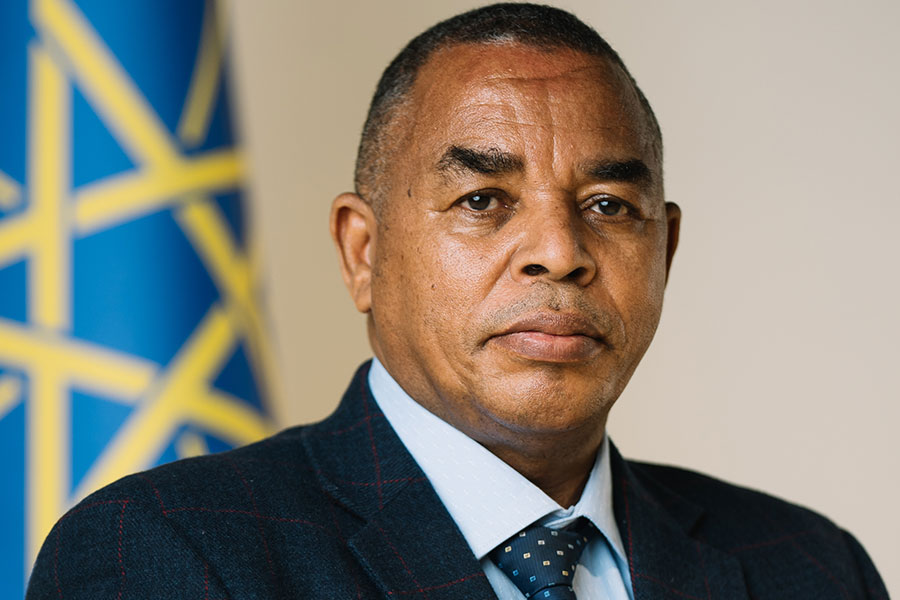
Commentaries | Jan 04,2020
Three international firms are vying to win a contract to develop a master plan for the productivity and commercialisation of the fishery sector. Consulting firms from Spain, Italy and Uganda have submitted their bids to a committee under the Ministry of Agriculture.
Developing a master plan for the fishery sector is part of a project financed by the World Bank, launched three years ago. It will be the first for Ethiopia, a country with vast aquatic resources, including over 20 lakes and 12 river basins. Experts estimate over 200 freshwater fish species in the country, including 194 natives, 40 endemics, and six exotic species. Commercialising the sources to full potential required a master plan.
The Ministry floated an international tender last year where Fewer than a dozen firms showed interest, with half its officials shortlisted.
Among them is DT Global, a Spain-based firm incorporated 60 years ago. It has experience in Angola and Sierra Leone, working on portable water projects. However, it is challenged by contenders with experience working in Ethiopia in the past.
Based in Kampala, Uganda, Eccelenzia Consorzio Research & Management (ECRM) is a company focusing on sustainable natural resource utilisation. Incorporated in 2007, it was involved in ecological and socioeconomic surveys conducted on Baro, Wabeshebella and Turkana rivers. AquaBioTech Group and AGT International, both Italian firms, are the third to submit a joint bid. AquaBioTech specialises in aquaculture, fisheries and aquatic environmental projects. Incorporated in 1969, AGT International took part in the rehabilitation and revival plan implemented in the 1980s, with financing from the European Economic Commission.
The selected firm is expected to finalise the master plan in eight months, according to Degayehu Desso, director of procurement at the Agriculture Ministry.
The bidding for the master plan comes three years following the World Bank's approval of a 170 million dollar project hoped to benefit 1.2 million people dependent on pastoralism and fishing.
“Half of the financing has already been used,” said Tomas Chernet (PhD), project coordinator.
The project has thus far been implemented in six regional states. Nearly 80-pond for fish culture has been constructed in 15 weredas, in partnership with close to 1,000 associations organised under the project. Each association comprises up to 25 members and receives a 140,000 Br grant for the construction of ponds. Members contribute 10pc. Construction costs close to 60,000 Br, while the balance goes towards the procurement of fishing equipment.
No less than 20 fish ponds have been established in five weredas across the Oromia Regional State, disclosed Bulbula Regassa, fishery development coordinator for the Oromia Livestock & Fishery Development Bureau.
Rahimato Abamoga, 42, is one of the beneficiaries of the project. Last year, he joined an association in Kersa Wereda, Oromia, in hopes of supplementing the income he earns from growing maise and wheat on two hectares. He was keen to try his hand in the fish business when wereda officials approached him with the proposition. Three months ago, he earned 600 Br from the sale of 30 fish.
“I'm hoping the proceeds will grow in the future,” said Rahimato, who supports a family of six.
Despite the introduction of artificial water bodies, fish is sourced mainly from inland water bodies such as lakes and rivers. The potential annual yield is estimated at 94,500tn. However, production is far below; according to data obtained from the Ministry, it does not exceed 39,000tn.
Officials hope the project and the master plan will help change this. They point out habitat degradation and a lack of tools and technology as the main bottlenecks for the fledging fishery industry.
Gebawo Tibesso is a fish health researcher at Batu Fish & Other Aquatic Life Research Center under the purview of the Oromia Agricultural Research Institute. He observed that most fisheries still use traditional fishing methods and equipment.
"There aren't many modern fishing tools," he told Fortune. "Illegal fishing gears are also problems.”
However, according to the researcher, habitat devastation remains the main cause of fish stock depletion and low levels of fish production. Fishers are prone to using prohibited fishing methods and equipment, such as narrow-mesh nets. They catch small fish and aquatic species that are essential for ecological balance.
Gebawo emphasises the need for a suitable aquatic policy, legislation and regulation to efficiently utilise resources and ensure enviromental protection.
"A regulatory measure that restricts gear mesh size, introduces catch limits, and closed season is needed to save the aquatic resources from total collapse," he said.
Tomas, the project coordinator, contends the preparation of the master plan will help tackle these issues.
Nonetheless, finding a qualified consultant for the preparation of the master plan has not been easy. The first bid floated in April last year was cancelled by the Ministry's officials.
“Only a few of the invited firms responded to our call,” said Degayehu. “This time, we're hoping the case will be different.”
PUBLISHED ON
May 07,2022 [ VOL
23 , NO
1149]

Commentaries | Jan 04,2020

Commentaries | Jan 14,2023

Radar | Jun 21,2025

Fortune News | Aug 27,2022

Radar | Aug 03,2025

Fortune News | Jul 25,2020

Fortune News | Feb 22,2019

Fortune News | Jul 13,2024

Radar | Nov 12,2022

Fortune News | Apr 12,2020

Dec 22 , 2024 . By TIZITA SHEWAFERAW
Charged with transforming colossal state-owned enterprises into modern and competitiv...

Aug 18 , 2024 . By AKSAH ITALO
Although predictable Yonas Zerihun's job in the ride-hailing service is not immune to...

Jul 28 , 2024 . By TIZITA SHEWAFERAW
Unhabitual, perhaps too many, Samuel Gebreyohannes, 38, used to occasionally enjoy a couple of beers at breakfast. However, he recently swit...

Jul 13 , 2024 . By AKSAH ITALO
Investors who rely on tractors, trucks, and field vehicles for commuting, transporting commodities, and f...

Sep 13 , 2025
At its launch in Nairobi two years ago, the Africa Climate Summit was billed as the f...

Sep 6 , 2025
The dawn of a new year is more than a simple turning of the calendar. It is a moment...

Aug 30 , 2025
For Germans, Otto von Bismarck is first remembered as the architect of a unified nati...

Aug 23 , 2025
Banks have a new obsession. After decades chasing deposits and, more recently, digita...